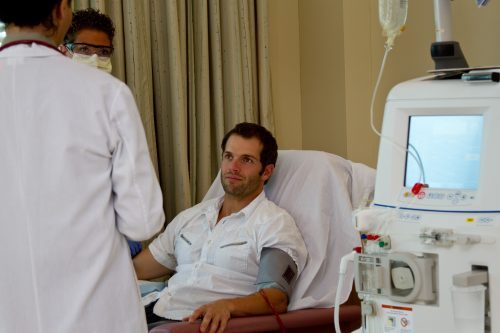
Dallas—The patient advocacy role of the nephrology nurse is key, allowing the nurse to assist patients gain full understanding of their treatment plan, gain confidence, and participate in decision making. Leah J. Wayner, MSN, ACNP, CNN-NP, of the division of nephrology at the University of Virginia in Charlottesville, recently undertook an exploration of the nurse-patient relationship as it related to compliance with treatment regimen and ways the relationship affects nursing practice. Ms. Wagner outlined her project in a presentation titled Dialysis Nurses’ Perceptions of Patient Autonomy and Advocacy at the 2019 ANNA National Symposium.
The primary objective of the project was to explore the perceptions of nurses on patient autonomy and decision-making, related to nursing education and treatment recommendations in a population of patients on dialysis.
The Attitude toward Patient Advocacy Scale (APAS) was administered to a convenience sample of 200 dialysis nurses at a large academic dialysis program. The scale includes 64 Likert-scale questions measuring nurses’ attitudes in advocating for patients. It is comprised of three subscales: (1) safeguarding patient autonomy (SPA); (2) acting on behalf of patients (ABP); and (3) championing social justice (CSJ). Participating nurses received a survey via e-mail, with a cover letter describing the study process.
Of the 200 dialysis nurses contacted, 26% completed the survey (n=53); the majority of the respondents were female (97%). All categories demonstrated favorable responses. The overall APAS mean was 5.29 (scale of 1-6); subscale means were 5.57, SPA; 5.67, ABP; and 5.13, CSJ. There were no significant associations between mean scores in any of the three subscales and age, education, years of nursing, or dialysis experience.
The author said, “The results demonstrated that this sample of dialysis nurses felt they effectively advocated for their patients and believed patient autonomy, advocacy, and championing social justice were important. Nurses felt this was regardless of age, level of education, or experience in nursing or in dialysis. This understanding could lead to greater satisfaction among patients as nurses help them to identify and achieve their goals.”
Source: Wayner L. Dialysis nurses’ perceptions of patient autonomy and advocacy. Abstract of a presentation at the 2019 American Nephrology Nurses Association National Symposium, April 14-17, 2019, Dallas Texas.






 © 2025 Mashup Media, LLC, a Formedics Property. All Rights Reserved.
© 2025 Mashup Media, LLC, a Formedics Property. All Rights Reserved.